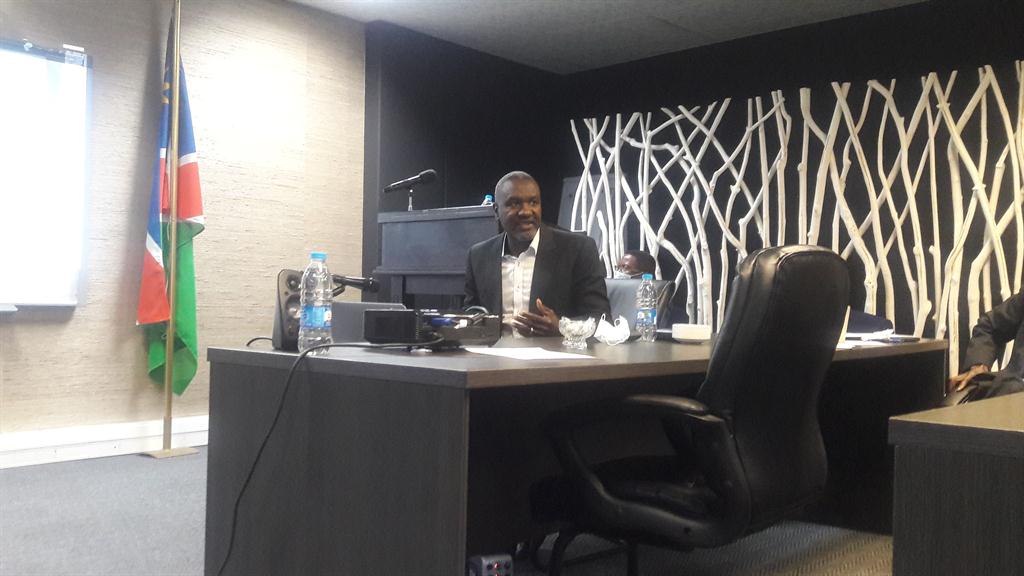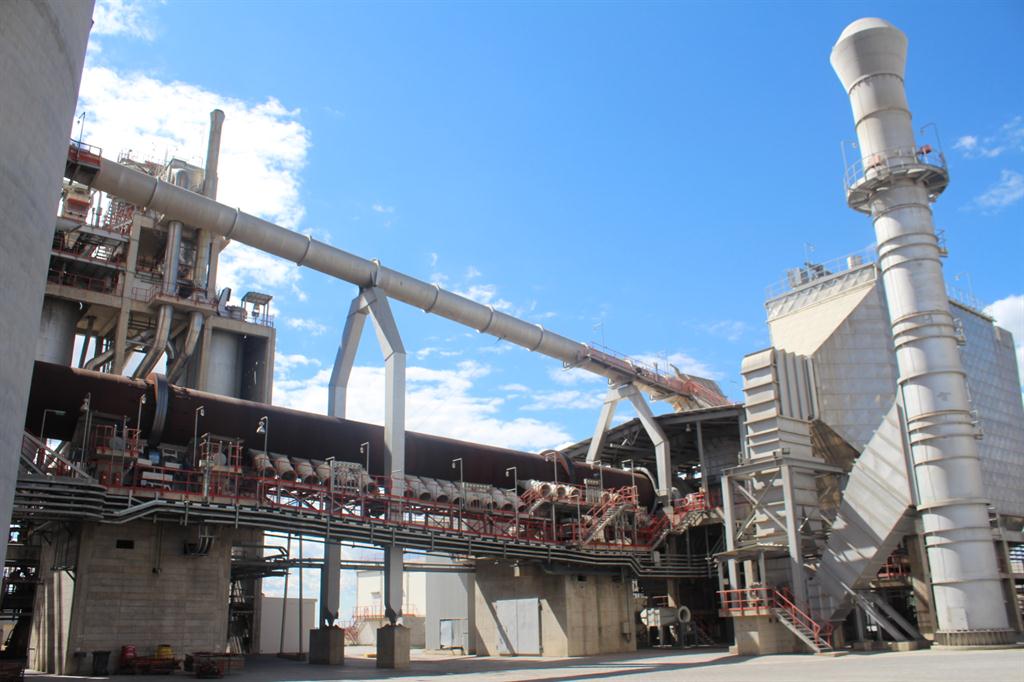Fears of Chinese monopoly in local cement
Should it happen that the potential buyers of Ohorongo Cement shares either have a direct or indirect relationship with their China counterparts who owns Cheetah Cement, it will have various negative effects on the market as it will mean that they are coordinating their actions.
Phillepus Uusiku - West China Cement has proposed the acquisition of shares in Schwenk Namibia, which owns in 69.83% in Ohorongo Cement.
West China Cement is a leading cement manufacturer and distributor in West China and it is listed on the Hong Kong Stock Exchange.
Should it happen that West China Cement, the potential buyers of Ohorongo Cement shares, either have a direct or indirect relationship with their China counterparts who owns Cheetah Cement, it will have various negative effects on the Namibian market.
The Namibian Competition Commission (NaCC) will carry out various tests, including the competition and public interest tests to determine the effect of the sale of shares in Ohorongo Cement to West China Cement.
Based on the results and after having done the necessary analysis, the commission will then make a final decision whether the acquisition deal should take place.
Speaking at a stakeholder conference on Thursday, Johannes Ashipala, the director for mergers and acquisition at NaCC, presented the method of collecting information to assess whether the proposed sale of 69.83% majority shares held by Schwenk Namibia to West China Cement should be approved or not.
Tests
Ashipala pointed out that the competition test is necessary to determine whether the deal will prevent or lessen competition in the market. It is also equally important to assess whether the deal comes with certain benefits such as technological advancement, which is very crucial.
Ashipala added that the public interest test is important to determine whether the deal will affect the public issues such as employment. It is also important to ensure that small and medium enterprises (SMEs) are not affected, which could affect their ability to compete internationally.
Therefore, before one can make a decision, it is important to question whether the merger is justifiable, substantial and what the effects would be should this merger materialise.
Horizontal merger
Ashipala explained that a horizontal merger requires attention because it is a merger between two competing entities who are selling substitutes goods. Substitutes are goods that give the same satisfaction or utility.
Considering the fact that there are only two cement manufacturing companies in Namibia, should these two companies merge it will create a monopoly in the market. A horizontal merger reduces the number of participants in the market and consumers will suffer from high monopoly prices.
Other negative effects that could arise as a result of this merger is price fixing. The two companies could agree to charge uniform high prices and leave consumers with no option but to accept the prices set. It will be a “take it or leave it” situation.
Monopolies also affect the quality of products because they know that there is no competition. Finally, the two firms could get involved in transfer pricing by allocating markets among themselves.
For instance, Ohorongo Cement can target the northern market, while Cheetah Cement focuses on the central and southern part of Namibia so that they can all benefit. This will disadvantage consumers in terms of product quality and prices.
Concerns
Various stakeholders including the ministry of industrialisation and trade, the Otavi town council and the Development Bank of Namibia (DBN) raised concerns regarding the proposed acquisition of Ohorongo shares to China’s leading cement manufacturer.
Employment was one of the issues raised. Fears exist that locals will be replaced with foreign employees considering that the Covid-19 pandemic have already forced various industries to retrench some of their workers.
Another concern is the risk of minority shareholders being forced out, as well as the risk of collusion such as price fixing and market allocation.
Finally, there is fear that the deal will cause disruptions in the localised value chain by causing competition for SME’s.
After having engage the necessary stakeholders, the commission will make a final decision in due course on whether the deal will materialise or not. The stakeholders have absolute confidence in the commission that it will make the right decision.
West China Cement is a leading cement manufacturer and distributor in West China and it is listed on the Hong Kong Stock Exchange.
Should it happen that West China Cement, the potential buyers of Ohorongo Cement shares, either have a direct or indirect relationship with their China counterparts who owns Cheetah Cement, it will have various negative effects on the Namibian market.
The Namibian Competition Commission (NaCC) will carry out various tests, including the competition and public interest tests to determine the effect of the sale of shares in Ohorongo Cement to West China Cement.
Based on the results and after having done the necessary analysis, the commission will then make a final decision whether the acquisition deal should take place.
Speaking at a stakeholder conference on Thursday, Johannes Ashipala, the director for mergers and acquisition at NaCC, presented the method of collecting information to assess whether the proposed sale of 69.83% majority shares held by Schwenk Namibia to West China Cement should be approved or not.
Tests
Ashipala pointed out that the competition test is necessary to determine whether the deal will prevent or lessen competition in the market. It is also equally important to assess whether the deal comes with certain benefits such as technological advancement, which is very crucial.
Ashipala added that the public interest test is important to determine whether the deal will affect the public issues such as employment. It is also important to ensure that small and medium enterprises (SMEs) are not affected, which could affect their ability to compete internationally.
Therefore, before one can make a decision, it is important to question whether the merger is justifiable, substantial and what the effects would be should this merger materialise.
Horizontal merger
Ashipala explained that a horizontal merger requires attention because it is a merger between two competing entities who are selling substitutes goods. Substitutes are goods that give the same satisfaction or utility.
Considering the fact that there are only two cement manufacturing companies in Namibia, should these two companies merge it will create a monopoly in the market. A horizontal merger reduces the number of participants in the market and consumers will suffer from high monopoly prices.
Other negative effects that could arise as a result of this merger is price fixing. The two companies could agree to charge uniform high prices and leave consumers with no option but to accept the prices set. It will be a “take it or leave it” situation.
Monopolies also affect the quality of products because they know that there is no competition. Finally, the two firms could get involved in transfer pricing by allocating markets among themselves.
For instance, Ohorongo Cement can target the northern market, while Cheetah Cement focuses on the central and southern part of Namibia so that they can all benefit. This will disadvantage consumers in terms of product quality and prices.
Concerns
Various stakeholders including the ministry of industrialisation and trade, the Otavi town council and the Development Bank of Namibia (DBN) raised concerns regarding the proposed acquisition of Ohorongo shares to China’s leading cement manufacturer.
Employment was one of the issues raised. Fears exist that locals will be replaced with foreign employees considering that the Covid-19 pandemic have already forced various industries to retrench some of their workers.
Another concern is the risk of minority shareholders being forced out, as well as the risk of collusion such as price fixing and market allocation.
Finally, there is fear that the deal will cause disruptions in the localised value chain by causing competition for SME’s.
After having engage the necessary stakeholders, the commission will make a final decision in due course on whether the deal will materialise or not. The stakeholders have absolute confidence in the commission that it will make the right decision.






Comments
Namibian Sun
No comments have been left on this article